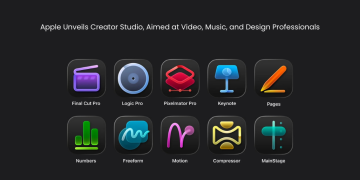The classroom is, of course, the finest place to learn a new language. Nothing beats the tried-and-true immersion method. However, many people cannot attend traditional offline classes due to a lack of time. Online language study is ideal for them. Thanks to technological advancements and the internet, language learning has never been easier. While there are certain drawbacks to using e-learning languages, the benefits greatly exceed the drawbacks.
When comparing some of the most downloaded, reviewed, and favoured ones, picking one for your language goal can become overwhelming. Fortunately, you’ll be intrigued if you carefully examine each program’s flexibility, features, available languages, and user reviews. Then it will usually become evident which option is best for you
Best Platforms to start with.
The following are 9 fantastic platforms for learning languages for free:
Duolingo is a free language-learning platform that combines a website and a mobile app. A digital language competency exam is also available to users. In addition, drills involving reading, writing, listening, and speaking are used to teach the languages. There is also an ‘immersion’ section with actual reading resources for those who want to go beyond the lessons. It works on Android, iOS, Windows Phone, and the web. The cost of a monthly subscription to Duolingo is $6.99.
Pros
Duolingo’s best asset is its motivational nature. Duolingo encourages you to learn a language by structuring the learning process as a game or a challenge. The classes are organized in a skill tree format, with many assignments or tests included in each session. As you complete the lessons, you gain experience points. Another entertaining feature is the option to make friends lists and compare your progress with others.
Cons
As the service focuses on learning languages naturally, grammatical explanations are limited.
As the site is crowdsourced, some courses may contain some amusing sentences.
Duolingo is a useful, quick, and enjoyable way to learn languages. It can incorporate into your entire learning strategy.
-
Memrise
Memrise is a free online learning platform that offers a variety of courses. It covers almost 200 language courses and a variety of other disciplines. The software employs adaptive spaced repetition learning technologies and a gamified flashcard technique. In addition, Memrise uses the image of a garden, where words are planted like seeds and cultivated in your short-term memory until they stick. It is available via Android, iOS, and the web.
Pros
- Memrise features many courses and vocabulary to choose from, a user-friendly design, and a vast flashcard library.
- There are forums for many languages where you can communicate with other learners and seek (or give) help and advice.
Cons
As the content is user-generated, the quality may differ, so be sure to select a fantastic course.
Memrise is a great application for visual learners and can be used to expand your vocabulary.
-
Babbel
Babbel is an online language learning programme that is more expensive than many of its competitors, but it offers higher-quality courses. Babbel is a typical online language learning course with diverse resources. The program’s greatest benefit is its visual vocabulary, separated into thematic sections. Each session is divided into four sections: vocabulary, dialogue, grammar, and review. It is accessible via Android, iOS, and the web. The monthly fee for Babbel is $13.95. Babbel is a fantastic option for in-depth instruction.
Pros
- Content is exact, with amazing examples and thorough explanations of the grammatical structure of the languages;
- There is equal concentration on all parts of language learning: reading, writing, listening, and speaking;
Cons
- Babbel lacks other great language learning websites’ smart gamification features, and the whole courses are not free.
- Some languages are not as well-covered as others.
-
Busuu
Busuu is a 60 million-strong global online language learning community that relies significantly on its users’ efforts to educate one another. It allows students to improve their reading, writing, speaking, and listening skills while also networking with other students. Beginners can learn new vocabulary with flashcards, but advanced students will need to write and answer questions that native speakers on the site will correct. It’s available for both Android and iOS devices.
Pros
The site gives learners customized feedback via an integrated chat function and well-developed courses with a complete approach to language learning.
Conversation practices with Busuu students are quite beneficial.
Cons
While dialogues, writing exercises, and audio recordings are all available for free, grammar courses, video units, and printable PDFs are exclusively available to Premium users. Nonetheless, a 7-day free trial subscription is available once you register on the site.
-
Rosetta Stone
One of the most popular paid language study apps is Rosetta Stone. It allows you to switch between languages before picking which one you wish to study. In addition, you can subscribe to an unlimited number of languages with Rosetta Stone. So if you want to improve your diction or adjust your intonation and accent, Rosetta Stone can help you. The best aspect is that the app is ad-free, allowing you to learn without interruption. It is accessible via Android, iOS, and the web. They have three subscription options: three-month, twelve-month, lifetime, and lifetime plus. The price fluctuates from $35.97 to $299, and they frequently provide discounts, but their prices are still high.
Pros
There are 25 languages to pick from; an immersive curriculum with accent correction is offered; the program has been around for a long time; it includes live chat with coaches and a digital phrasebook; corporate and classroom solutions are available.
Cons
There is no free version; there is a limited free trial; the program is more intensive than other language-learning options.
-
Anki
Anki is a free cross-platform flashcard program, one of the greatest language learning programs available. It can also memorize equations, diagrams, names and faces, and other information. It works with photos, audio, video, and scientific markup and is content-neutral. In addition, Anki’s spaced repetition system predicts when you’re about to forget what you’re learning and reminds you just before your memory slips altogether. It may download for free on Android, iOS, Linux, OSX, Windows, and the web.
Pros
A large number of full flashcard sets are referred to as shared decks.
Many of the options, from layout to review schedule, may be customized, and you can create decks tailored to your specific needs.
Cons
At first, the user interface can be overwhelming.
It cannot utilize technology on its own because memorizing extensive lists of words won’t teach you how to speak a language. To use the words, you need to learn them in context.
Anki is a great resource to use with other language learning programs.
-
Clozemaster
Clozemaster is a game-based language learning programme that helps you learn new vocabulary by putting it into context. It complements other language learning apps like Memrise and Anki by providing a sentence-based and contextual learning experience. Cloze master cloze deletion exams are available for learners to complete, in which they must replace the missing words in the sentence prompts. Answers can be provided in two ways: multiple-choice questions or text input. It is available for free on Android, iOS, and the web. The cost of a monthly subscription is $8. Clozemaster is an excellent language study tool for mastering difficult vocabulary in a sentence setting. It can be a useful addition to language study at any level.
Pros
You can change the game’s parameters (switch between multiple-choice and text input, hide the translation, turn text-to-speech on or off, etc.)
It’s completely free to play, and you may use it without registering or signing in.
There is a lot of repetition.
Cons
It is not suitable for novices. Learning a language with this gamification language learning software is difficult if you’re a complete beginner.
-
LingQ
LingQ is a simple and enjoyable approach to practising vocabulary in a real-world setting. The app will select audio and video lessons for you after registering and selecting the language you wish to learn and your level. You can also select books and short tales. It allows you to immerse yourself in a topic by allowing you to read web publications on that topic. You select each word you don’t understand while reading, and the software translates and pronounces it for you. All of the words you choose are remembered by the language learning programme. It’s free to use on the web, Android, and iPhone. The monthly fee for unrestricted access is $12.99.
Pros
You select the articles, audio, and video you want to learn.
The app recommends materials that are appropriate for your skill level.
The app maintains track of how many points you earn, how many words you learn, and how far you’ve progressed.
You have the freedom to learn at your own pace.
Cons
Idiomatic statements may be difficult for the software to translate word for word.
-
Byki Mobile
Transparent Languages’ Byki is a language learning programme. It’s mostly intended for language acquisition. There are 80 languages to choose from. For each language, the app provides free limited access to three-word lists. Users must make an in-app purchase ($7.99 for each language) to access the complete content. Over 1,000 words and phrases essential for language acquisition are included in the complete access. It is free to download on both Android and iOS.
Pros
Native speakers pronounce all of the words.
It’s possible to track how far you’ve progressed in your studies.
Quizzes to test self-control over previously studied content.
Cons
Byki Mobile’s free edition is limited to only three lists and has limited capabilities.
Byki is an excellent complement to nearly any other language learning approach.
Conclusion
Regardless of your home tongue, learning a second language is a terrific way to broaden your personal and professional horizons. If you’re having trouble deciding which online programme to enrol in, look at the apps listed above. Apps have revolutionized the way individuals learn a new language. Use your spare time to learn a language you’ve always wanted to learn! Combine these with other resources, such as a teacher and books, as a compliment. You can start learning your favourite language by downloading a few applications. Your learning style and goal will determine the option you choose. I hope that this list of the best language learning apps for 2022 will assist you in achieving your objective.






